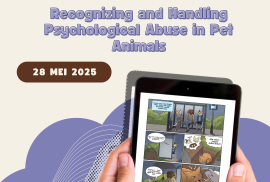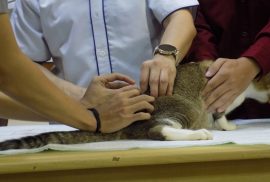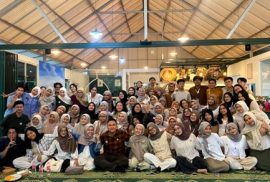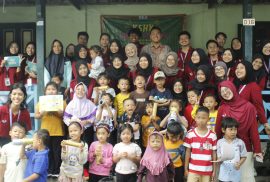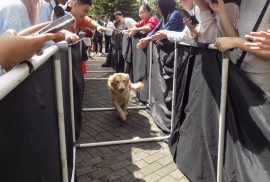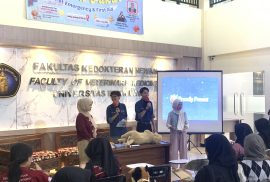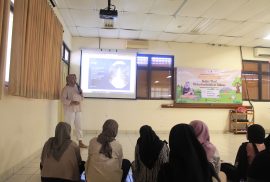FunVets #1 is one of the annual programs organized by the Pet Loving Study Group (KSHK) of the Faculty of Veterinary Medicine UGM and is managed by the Department of Media and Design. This program aims to raise awareness about common animal welfare issues affecting companion animals through comic media, which is shared on KSHK’s Instagram and X accounts, as well as comic posters displayed on the Faculty of Veterinary Medicine's bulletin boards.
Pet Animal Study Group
Kelompok Diskusi Klinik (KODIK) is an initiative organized by the Kelompok Studi Hewan Kesayangan (KSHK) of the Faculty of Veterinary Medicine, Universitas Gadjah Mada. This activity aims to enhance students’ skills in handling various clinical cases, continuously discuss fundamental clinical knowledge ...
On Saturday, May 17, 2025 at the Faculty of Veterinary Medicine UGM, the Pet Animal Advanced Study (PAAS) was carried out by Departemen Pendidikan of Kelompok Studi Hewan Kesayangan (KSHK) of the Faculty of Veterinary Medicine, Universitas Gadjah Mada.
Bonding and Upgrading 2025 of the Kelompok Studi Hewan Kesayangan (KSHK) Faculty of Veterinary Medicine, Universitas Gadjah Mada 2025 is an annual KSHK activity, which this year is specifically organized for the “Pengurus Harian KSHK” for the 2025 term
KSHK Go To School, themed “Pet Day at School,” is an initiative organized by the Community Engagement Department of the Companion Animal Study Group (KSHK) at the Faculty of Veterinary Medicine, Universitas Gadjah Mada.
“Easter Special” Dog Run is a collaborative activity between the Pet Study Group (KSHK) of the Faculty of Veterinary Medicine, Universitas Gadjah Mada and the Dog Run Community located in Yogyakarta.
The first Delegation in 2024 was carried out by Kelompok Pet Animal (KEPETA) Faculty of Veterinary Medicine Universitas Brawijaya on Saturday, June 1st 2024. The event included the Expert Lecture (Kuliah Pakar) about “Pet Emergency & First Aid”. The speaker was drh. Yulinar Risky Karaman, M. Biomed who is a practicioner doctor at the Faculty of Veterinary Medicine Universitas Brawijaya, Academic Animal Hospital.
The Expert Lecture began with a presentation by the speaker, followed by a question and answer session from the participants. In addition, Expert Lecture is also filled with group hands-on sessions that will be accompanied by an experienced committee. The committee members provided an explanation regarding how to bandage and perform CPR (Cardiopulmonary Resuscitation) on a dummy. After the hands-on session, there was a hands-on demo for three participants. Then, it continued with a quiz that has been provided regarding the material previously presented and will receive prizes for participants with the best scores.
It is hoped that the activities of the Delegation who visited this Lecture Expert will help students understand triage for pet animals, provide first aid for animals, improve skills in handling emergencies, and answer questions that are not found in the daily lecture, especially regarding the handling of emergency diseases in pet animals.
Contributor: Esther Margaret Taniaga and Nasywa Humaira Mustofa
This year, PAAS was filled with a presentation about “Feline Viral Rhinotracheitis (FVP) and Fluid Therapy” by drh. Irfana Dewi Anggraini. After the session, question and answer session was held between the participants and the speaker. The three best questioners will get prizes that have been prepared by the committee. As a series, PAAS were also filled with practical examination sessions under the guidance of experienced trainers. Each trainer was divided into groups to provide explanations to participants from their respective groups regarding how to provide fluid therapy to pets affected by Feline Viral Rhinotracheitis (FVP), educate on how to handle and restrain properly during infusion insertion, and show how the examination practice is carried out directly (Hands On) to the cat that has been provided at the activity.
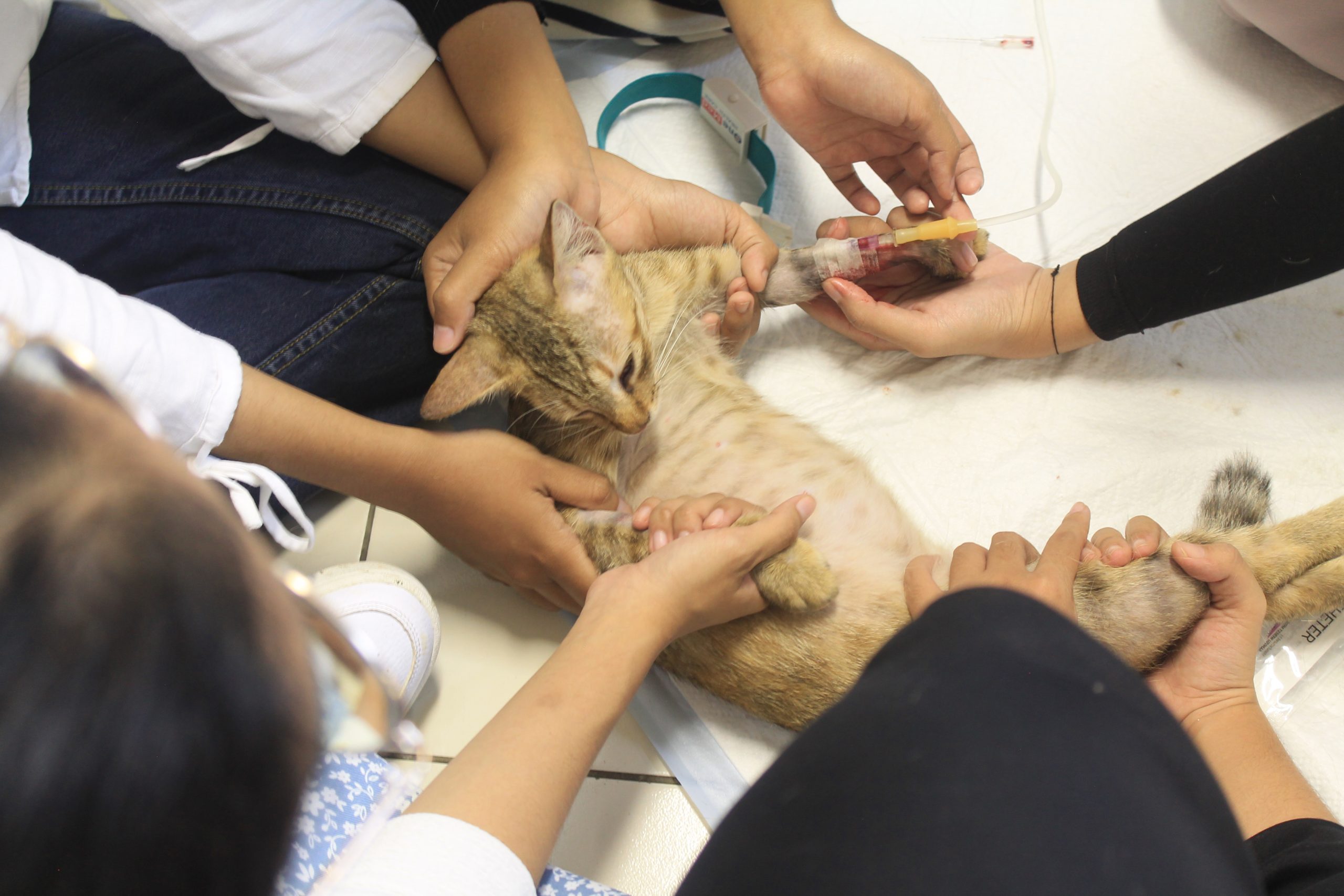
The benefits of this activities are helping KSHK members to explore cases of diseases that often occur in pets and improve soft skills in handling cases about fluid therapy. In addition, this activity is carried out as an effort to deepen knowledge and provide sustainable education about handling and restrain during treatment, physical examination, how to diagnose a case of disease, and various equipment needed when handling. The benefits not only be perceived by participants but also by the committee that prepared this event. Besides that, it can help us to practice cooperation and improve communication between committees. By holding the Pet Animal Advanced Study (PAAS), it is hoped that participants can understand and get useful benefits in the future as veterinarians.
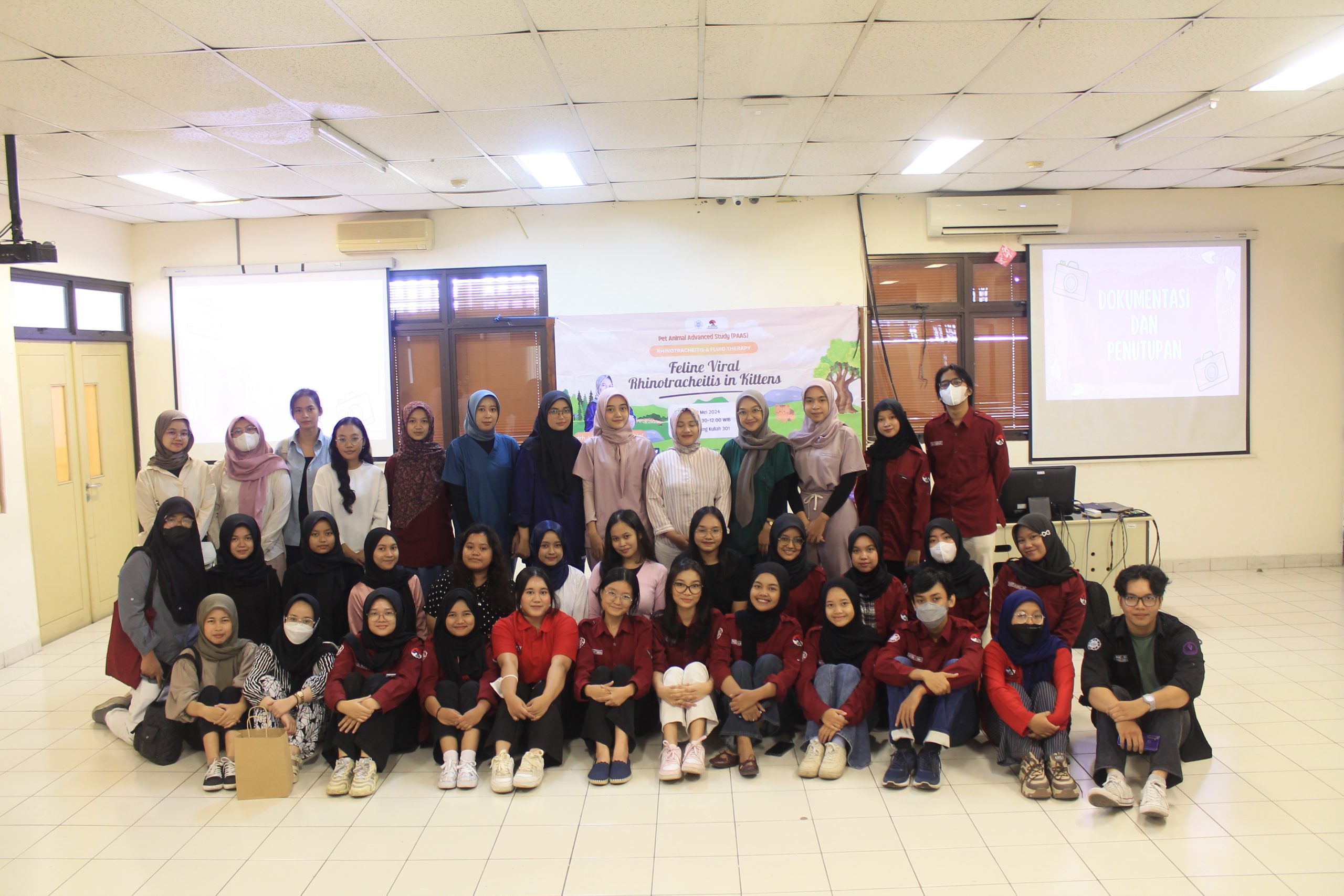
Contributor: Gayuh Bermana Wilasita

